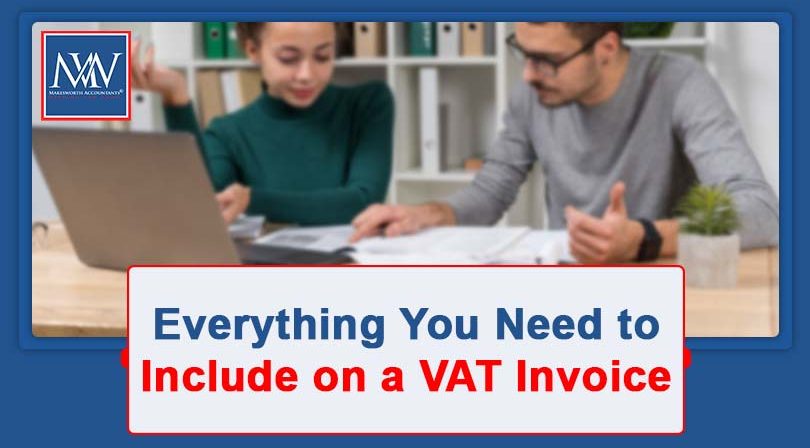
Everything You Need to Include on a VAT Invoice
What is a VAT Invoice?
A VAT invoice is a document issued by a VAT-registered business that contains all details required under VAT regulations. Only businesses registered for VAT can issue these invoices, and they are mandatory whenever goods or services subject to standard or reduced VAT rates are supplied to another taxable person.
Typically, a VAT invoice must be issued within 30 days of the supply date. Businesses must also keep a copy of every VAT invoice they issue and receive, as these serve as the main evidence of VAT charged and VAT paid.
Mandatory Details on a VAT Invoice
Every VAT invoice must include the following information:
-
A unique, sequential invoice number.
-
Date of supply (tax point).
-
Invoice issue date (if different from supply date).
-
Supplier’s name, address, and VAT registration number.
-
Customer’s name and address.
-
Clear description of goods or services supplied.
-
Quantity of goods or extent of services.
-
Unit price, VAT rate, and net amount payable (before VAT).
-
Total amount due, excluding VAT.
-
Total VAT amount in sterling.
-
Rate of any cash discount offered.
Note: If a margin scheme is used, businesses must follow the specific rules of that scheme.
Special Rules for Northern Ireland and EU Invoices
For businesses in Northern Ireland issuing invoices to EU member states:
-
Add the prefix “GB” before your VAT registration number.
-
Include the recipient’s VAT registration number with the correct EU country code.
-
Provide a reference to the means of transport (where applicable).
Electronic VAT Invoices
VAT invoices can also be issued electronically, which helps reduce paperwork. These digital invoices must contain the same information as paper invoices.
If sending a batch of invoices to the same customer, shared details (like the customer’s name) can be included once in the batch header instead of repeating them on each invoice.
Retail Supplies and Simplified VAT Invoices
For retail transactions made to unregistered businesses:
-
A VAT invoice is not required unless requested.
-
If the supply is £250 or less, you may issue a simplified VAT invoice.
-
If the supply is more than £250, a full VAT invoice must be provided if requested.
Simplified VAT Invoice (for £250 or less) must include:
-
Supplier’s name, address, and VAT registration number.
-
Supply date.
-
Description of goods or services.
-
VAT rate applied to each item.
-
Total amount payable (including VAT, in sterling).
Exempt supplies should not appear on simplified invoices.
Credit Notes
A credit note must mirror the details of the original invoice and clearly reference it, ensuring both documents can be matched.
Currency Rules
While invoices may show amounts in any currency, the total VAT due in the UK must always be shown in sterling.
✅ In summary: VAT invoices are essential records for both businesses and HMRC. Making sure they include the right details—whether standard, electronic, simplified, or credit notes—ensures compliance and smooth VAT reporting.
For more information, Book a Free Consultation
Need Accountancy Support?
For information on bespoke training, or if you have any other questions for Makesworth Accountant, please fill in your details below
















 151
151